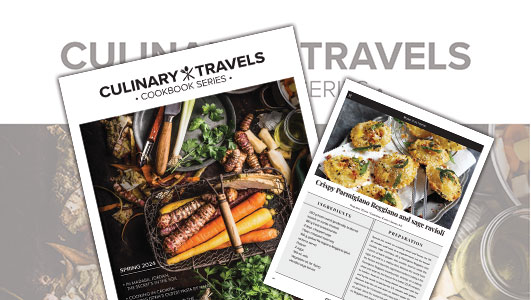Mastercard Economics Institute Tracks 2023 Travel Industry Trends

Mastercard Economics Institutes has released it Travel Industry Trends 2023 report which reveals that consumers are taking advantage of a more traditional travel ecosystem in 2023, prioritizing leisure travel and pioneering new corridors around the world.
The trends report provides insights about the global state of travel, punctuated by shifting economic landscapes, persistent consumer demands, and a reopening of mainland China.
In the face of a changing economic landscape, post-pandemic preferences for experiences over things (1) and a consistent demand for leisure travel shape the 2023 outlook.
Initially lagging leisure travel, business travel found its footing in the latter half of 2022, especially in cultures prioritizing a return to office. With an uncertain economy providing some cross-market turbulence, mainland China’s reopening is expected to bolster growth globally with concentrated impact in Asia Pacific, according to Mastercard Economics Institute estimates.
Key findings include:
- Leisure and business travel are growing at the same pace. Global leisure travel remains robust, with flight bookings up roughly 31% in March 2023 compared to the same month in 2019.(2) In the second half of 2022 into early 2023, corporate flight bookings caught up to leisure flight bookings driven by regions with a strong return to office culture.(3) Global leisure and business travel are now growing at similar rates. The report’s insights show demand for in-person meetings, with the most significant growth in commercial travel and entertainment expenses being led by Asia Pacific and Europe up 64% and 42%, respectively, between January-March 2023.4
- Mainland China’s reopening benefits global and Asia Pacific tourism. China’s reopening following tight COVID regulations comes at a time when it will likely have a positive impact on the experience economy as pent-up demand for travel is expected to drive strong tailwinds. By March 2023, spending on experiences was notably 93% of where it was in 2019 despite minimal travel last year.(6) Economies in the Asia Pacific region could be obvious beneficiaries of China’s opening, given their strong ties to international trade, tourism, and geographical proximity. Based on Mastercard Economics Institute estimates, other countries that are expected to benefit include northern Europe – Germany and France – and Brazil, which could see a boost in their exports to China as the economy recovers.
- Travellers establish new corridors. As consumers are enjoying higher incomes and returning to some level of pre-pandemic comfort, they’re also starting to venture further from home to new locations. Germany and Spain are becoming more popular for Latin American travellers, while Saudi Arabia and Egypt have become popular destinations for travellers from Eastern Europe, the Middle East and Africa. The U.S., previously ranked as number 5 in the top destinations for European travellers in 2022, now ranks number 4, signaling a building desire to explore across the pond (7). Traditionally tourism-driven European countries like France, Italy, Spain, Portugal and Greece could disproportionately benefit from resilient global tourists.
- Tourists continue to prioritize experiences. Preference for experiences over things persists, and travellers are demonstrating new demand for the unique. Potentially influenced by social media and entertainment, travellers are landing in lesser-known destinations in search of cultural immersion. As of March 2023, global spending on experiences was up 65% while spending on things is up 12% compared to 2019.8 Experience-oriented spending is surging in certain corridors where pandemic lockdowns have expired, but Chinese tourists who traditionally over-index on luxury retail compared to other tourists could provide a boost to goods spending across markets.
Bricklin Dwyer, Mastercard chief economist and head of the Mastercard Economics Institute, observed: “In the first full year of unfettered travel since the pandemic, consumers are acting on pent-up desire to explore new locales, connect with friends and family, and accumulate experiences to make up for lost time.”
Dwyer continued: “Despite evolving economic landscapes, resilient consumers continue to prioritize travel. And with new corridors emerging and China reopening, the 2023 outlook indicates good reason to be optimistic.”
Travellers want a good experience from the time they book their plane ticket to their first step on new soil, and companies that understand that are better positioned to establish longer and more valuable relationships with their consumers.
This key shift in expectations has already started to change not only how companies work with their consumers, but also the way in which we travel. And though consumer behavior will continue to shift alongside the macroeconomic environment, providing more choice in how to pay (like redeeming points for bookings), and tailoring experiences, recommendations, and offers are just two strategies that keep the individual traveller at the center of engagement.
To access the full report, click here.
Notes
1 “Experiences” includes tourist spending at restaurants, amusement parks, casinos, nightclubs, bars and other events, while “Things” includes tourist spending at convenience store chains, apparel, cosmetics, sporting goods, jewelry, footwear, bookstores, electronics, toys and department stores. Excludes transportation and lodging spend. Represents analysis of aggregated & anonymized switched volumes (nominal US dollars unadjusted for FX) for leisure travelers while in-destination.
2 Corresponds with the number of flight bookings made by leisure travelers during reference period relative to the same time in 2019. Based on aggregated & anonymized Mastercard flight booking data provided by third party partners, sourced by Mastercard Economics Institute.
3 Corresponds with the number of commercial flight bookings made during reference period relative to the same time in 2019. Based on aggregated & anonymized Mastercard flight booking data provided by third party partners sourced by Mastercard Economics Institute.
4 Represents Mastercard Economics Institute analysis of aggregated & anonymized switched volumes (nominal US dollars unadjusted for FX) for corporate travel & entertainment expenses.
6″Experiences” includes tourist spending at restaurants, amusement parks, casinos, nightclubs, bars and other events, while “Things” includes tourist spending at convenience store chains, apparel, cosmetics, sporting goods, jewelry, footwear, bookstores, electronics, toys and department stores. Excludes transportation and lodging spend. Represents analysis of aggregated & anonymized switched volumes (nominal US dollars unadjusted for FX) for leisure travelers while in-destination.
7 Analysis based on the number of inbound international flight bookings made by selected region into destination markets displayed on the chart. Based on aggregated & anonymized Mastercard flight booking data provided by third party partners sourced by Mastercard Economics Institute.
8 “Experiences” includes tourists spending at restaurants, amusement recreation activities, casinos, nightclubs, bars and other events, while “Things” includes convenience store chains, apparel, cosmetics, sporting goods, jewelry, footwear, bookstores, electronics, toys and department stores. Excludes transportation and lodging spending. Represents analysis of aggregated & anonymized switched volumes (nominal US dollars unadjusted for FX) for leisure travelers while in-destination.


